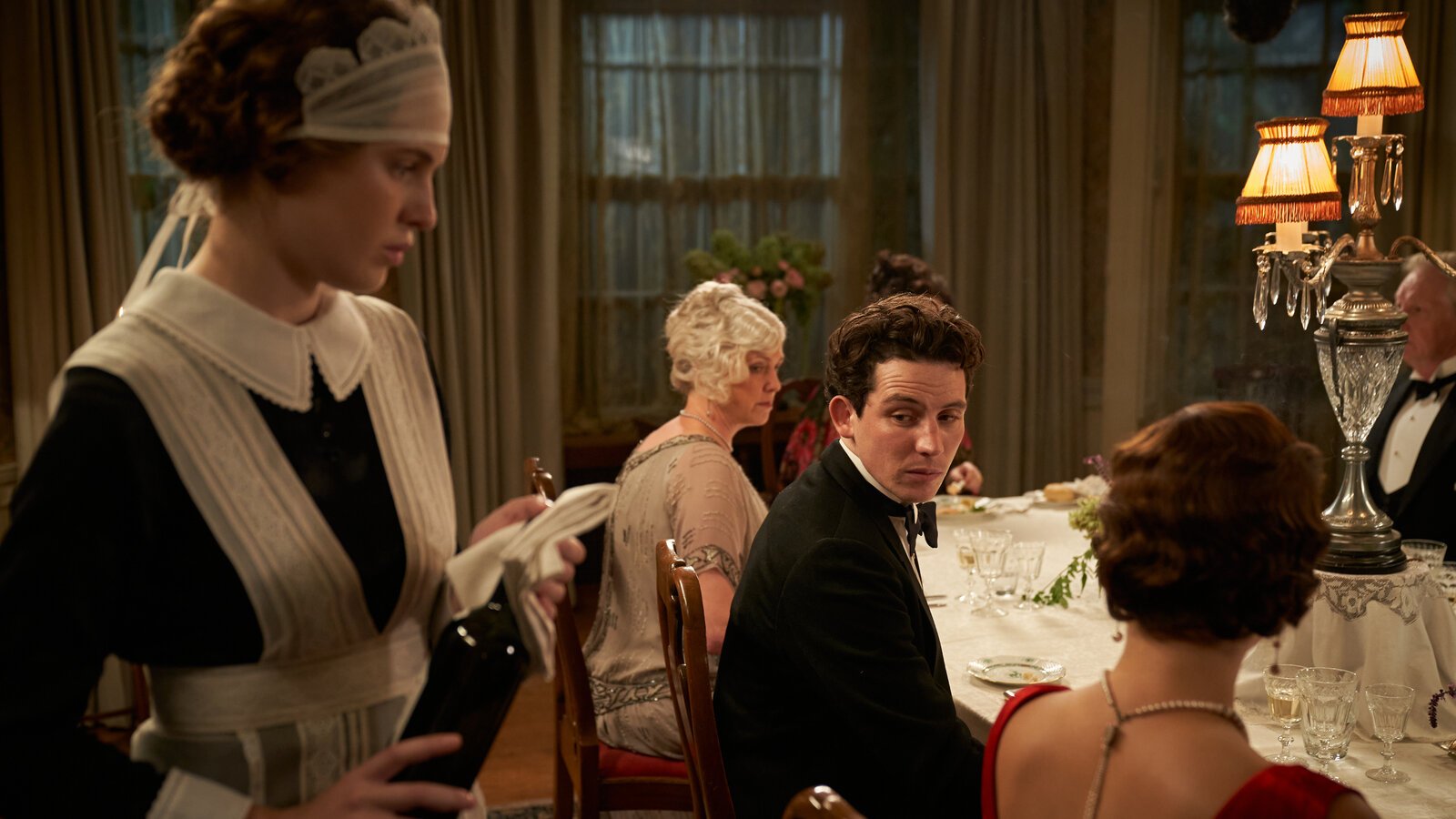MOTHERING SUNDAY
Directing: B-
Acting: B+
Writing: B-
Cinematography: B+
Editing: B-
I love me a good British period drama, and Mothering Sunday effectively scratches that itch, without particularly standing out from the crowd of British period dramas, this year or any other year. And unless you have the sane affinity for these sorts of films, I hesitate to recommend it, particularly given how long it takes to make clear how all its multiple narrative threads and timelines fit together. If you have the patience for it, though, sticking it out does come with its rewards.
Admittedly, this film did have to take some time to prove itself to me. The very opening shots include an intense, crystal clear close-up of Josh O’Connor’s lips. This is the young man who played Prince Charles in the last two season of Netflix’s The Crown. He’s a beautiful man, and incidentally, we are treated to several full-frontal shots of him in this movie. Director Eva Husson shoots a whole lot of the film in an incredibly sensual manner, and I have no complaints about that. But, this close-up of O’Connor’s lips, while he talks about something not particularly sensual at all, was a little much.
After that, however, Mothering Sunday is shot beautifully, by cinematography Jamie Ramsay. It might be the best thing about the film, how pretty it is to look at. The real problem, at least in the first half, is the editing, which often left me very confused. It’s only after some time that it becomes clear we are seeing the same character, Jane (Odessa Young), at different ages, intercut with each other. The primary timeline is a Mother’s Day (hence the title) shortly after the first World War, during which two families are meeting for lunch: between the two couples, only one of their children, Paul (O’Conner), has survived the war. Jane, here working as a maid for the now-childless Nivens (Colin Firth and Olivia Colman), is having an affair with Paul, and has met him at his home just before the aforementioned lunch, for which this meeting is making him late.
Intercut with this is Jane and Paul, in a casual relationship at a presumably earlier time; Jane and a later boyfriend, Donald (Sope Dirisu, his being black, fascinatingly, only once subtly alluded to); and in just a couple of scenes, Jane as a very old woman, having won all the literary awards.
For a while, I honestly wondered what the point of this story even was. Elements of class differences begin to creep into the narrative, and that makes things a little more compelling—as well as Jane’s backstory as a young woman with no family, raised in an orphanage. In the end, though, fair warning (and I suppose, mild spoiler alert): Mothering Sunday becomes a tragedy. It’s not a tear jerker per se; movies can easily make me cry when barely trying, but I needed no tissues here. It’s a little more like Eva Husson is presenting “tragedy as art.” Honestly, Mothering Sunday seems to aspire to more of an “artistic” vision than it quite achieves, beautiful cinematography notwithstanding.
Still, it held my attention, and I’ll grant it that much. I have no harsh criticisms of this film, aside from that off-putting closeup of lips. There’s also a sequence in which Jane wanders around Paul’s empty house, after he has finally left for the lunch, completely naked. It’s an oddly dreamy sequence, and adds to this movie’s pretty extensive amount of nudity. Nudity is fine, so long as there’s a point to it. Mothering Sunday might come more recommended if I came away from it remembering the story more vividly than I did the nudity. But, as I said, if you have a thing for British period dramas, it still fits the bill.
A feast for the eyes with a few empty calories.
Overall: B

